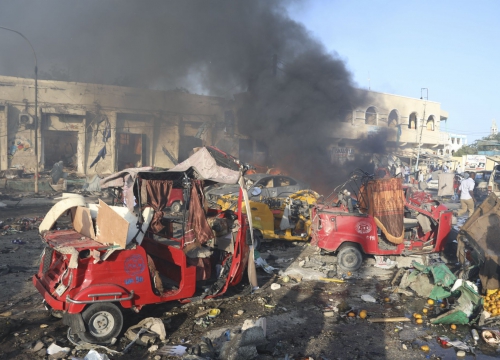The Classification of Armed Conflicts


ICRC
Descriptive
This short course provides an in-depth study of an emblematic example of the complexity of international humanitarian law (IHL) and the challenges it raises: the classification of armed conflicts (ACs).
The course first analyses the contours of the various categories of ACs (e.g. international AC, internationalized non-international ACs, wars of national liberation, belligerent occupations, high-intensity and low-intensity non-international ACs) in connection with the traditional distinction between non-international and international ACs.
The course then questions the relevance of this last distinction in light of the requirements of contemporary ACs and the increased role played by independent actors within them. The course relies, as much as possible, on concrete examples illustrating the different categories of ACs and the controversies they raise.
Online
This is an online short course.
Schedule
Classes will take place online during lunchtime on:
- Friday 11 October 2024, 12:00–14:00 (CET)
- Friday 18 October 2024, 12:00–14:00 (CET)
- Friday 25 October 2024, 12:00–14:00 (CET)
- Friday 1 November 2024, 12:00–14:00 (CET)
- Friday 8 November 2024, 12:00–14:00 (CET)
- Friday 15 November 2024, 12:00–14:00 (CET)
Audience
This short course forms part of the Geneva Academy Executive Master in International Law in Armed Conflict. It is open to professionals – diplomats, lawyers, legal advisers, judges, NGO staff, human rights advocates, media specialists, professionals working in emergency situations, UN staff and staff from other international organizations – who are not enrolled in the Executive Master and who want to deepen their expertise in this specific issue.
Fee
The fee for this short course is 1,250 Swiss Francs. In case of cancellation by the participants, CHF 200 won't be returned.
Certificate
Participants obtain a certificate at the end of the course (no ECTS credits are gained).
How to Apply
Applications must be submitted via this online form.
Your application will have to include:
- A short motivation letter (no more than one page)
- Your curriculum vitae
- Proof of your competence in English (a certificate or statement highlighting your solid background in English)
- Once admitted to the course, participants receive instructions on how to pay. Proof of payment is required before you begin the course.




